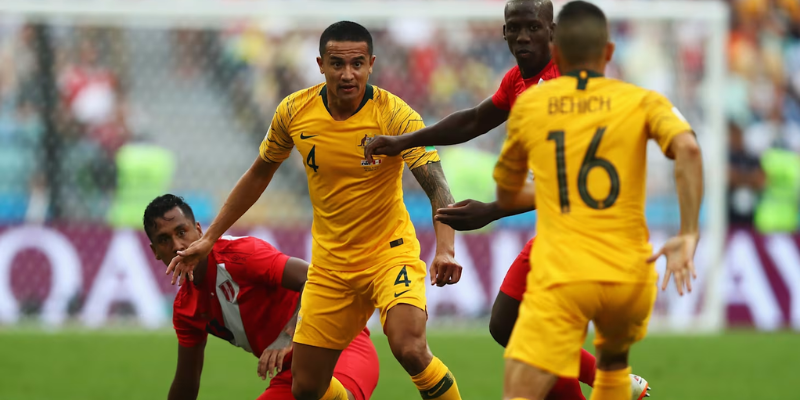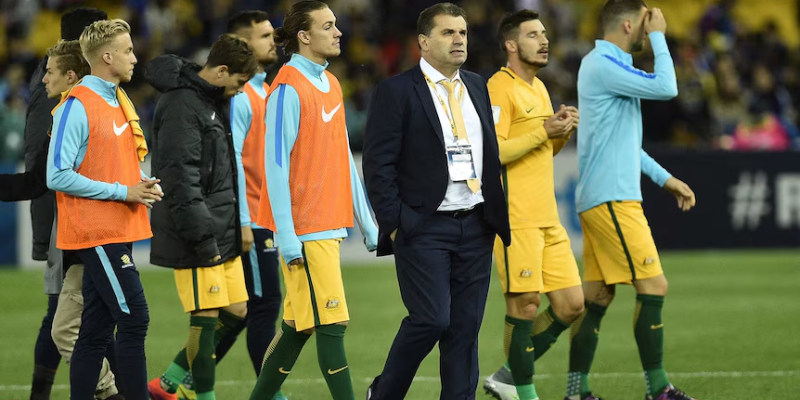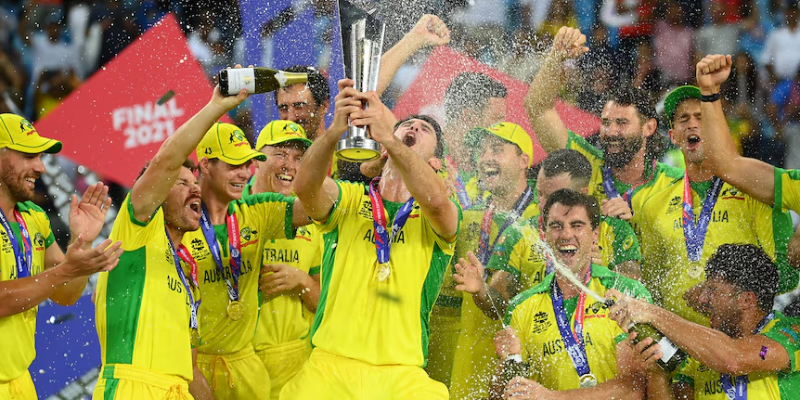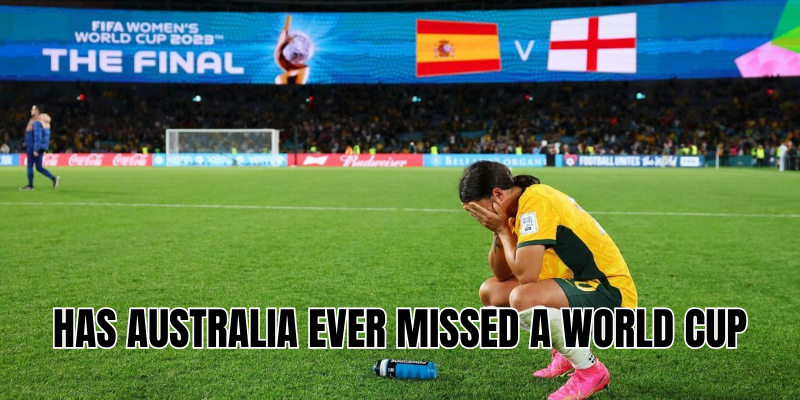When a fan types has Australia ever missed a World Cup, a picture of inconsistency, heartbreak, and a long fight to establish itself on the global football stage often comes to mind. Australia’s journey to the FIFA World Cup has been anything but smooth — filled with stretches of absence, bruising playoff defeats, and finally, a modern era of near-constant qualification. In this article, QuraGoal will take you through the full storyline: where Australia skipped out, why they struggled, and how they rose to become a regular presence on football’s greatest stage.
Australia’s early absence: Did they skip World Cups?

To answer the core question: yes — Australia has missed many editions of the World Cup, especially in its early years., the Socceroos often didn’t enter the tournament or failed to get past qualifiers. The reasons were many: geographical isolation, limited football infrastructure, low prioritization of soccer relative to cricket and rugby, and logistical challenges of competing across continents.
Not entering vs failing to qualify
It’s important to distinguish two different kinds of “missed”:
- Did not enter / no application: In several early tournaments, Australia simply did not participate in the qualification process.
- Entered but failed to qualify: In later decades, Australia made attempts but was eliminated in qualifiers or intercontinental playoffs., Australia did not even attempt to qualify for many tournaments between 1930–1962. Their first attempt was in 1966, which ended in failure. In subsequent tournaments, they sometimes entered but failed to secure a spot — for instance in 1970 they attempted, but did not qualify. occer World Cups])
Thus, over the decades, Australia has “missed” many World Cups — either by abstention or by failure to qualify.
The first breakthrough: 1974 and decades of drought

Australia’s first appearance at the FIFA World Cup came in 1974, when they qualified for the tournament hosted in West Germany. Their debut was modest: they drew 0–0 with Chile but lost to East Germany and West Germany, exiting in the group stage without scoring a goal.
That 1974 appearance was an optimistic moment, but Australia would not return to a World Cup finals until 2006 — a 32-year gap that saw them repeatedly fail to qualify or not even enter.
Some notable examples from that drought:
- 1978 to 2002: Many editions in this span saw Australia either abstain or fall to rivals in qualifying rounds.
- Intercontinental playoffs: Australia often dominated weaker teams in Oceania, only to be forced into cross-confederation playoffs, where they came up short — e.g. against Uruguay, Iran, Argentina.
So yes — Australia “missed” many World Cups before 2006.
A new era: Consistent qualification since 2006
After that long drought, Australia turned a corner. Since the 2006 World Cup, the Socceroos have qualified for every edition:
- 2006
- 2010
- 2014
- 2018
- 2022
- (Qualified for 2026)
That means in the modern era, they’ve rarely “missed” — the failure periods belong to earlier eras.
Why the shift?
Several factors contributed to the transformation:
- Switching confederations: In 2006–2007 Australia moved from the Oceania Football Confederation (OFC) into the Asian Football Confederation (AFC). This gave them more competitive, balanced qualification paths and avoided the extreme playoff bottleneck.
- Improved infrastructure and investment: Football in Australia grew in professionalism, scouting, development, and exposure, helping produce more competitive national squads. (General trend observed across their football history)
- Experience and momentum: Success breeds confidence. Qualifying in 2006 reenergized Australian football, setting up pathways and expectation to reach further tournaments consistently.
Because of this, Australia now is seldom considered as a serious “miss” candidate in qualifiers — they are more often an expected entrant.
Highlights & struggles: Australia across their World Cup appearances
To understand the depth behind “has Australia ever missed a World Cup,” it helps to look at what they achieved when they did qualify.
Best performances
Australia’s best results in World Cups to date:
- 2006 (Germany): Reached the Round of 16, eliminated by Italy via a stoppage-time penalty.
- 2022 (Qatar): Again they made the Round of 16, another solid campaign before falling to eventual champion France.
In other tournaments (2010, 2014, 2018) they failed to reach the knockout stages.
Records & notable players
- Most World Cup appearances (matches): Mathew Leckie and Mathew Ryan both made 10 matches across tournaments.
- Others with high involvement: Tim Cahill, Mark Bresciano, Aziz Behich, Scott Chipperfield, among others, have been key figures over multiple tournaments.
- Australia’s all-time goal tally, wins, losses, and group stage stats reflect a team that has often punched above its weight relative to its historic resources.
These achievements also help explain why missing a World Cup in earlier decades feels like a “gap” in their football story.
Current outlook and future chances

With the Socceroos qualified for 2026 ahead of time and continuing to build on decades of progress, the question of “has Australia ever missed a World Cup” pivots more into historical curiosity than present concern. The modern expectation is: Australia participates — barring a shocking collapse — and competes.
Still, challenges remain:
- The AFC qualification path is more competitive now than ever, with rising football powers across Asia
- Maintaining youth development, coaching, and infrastructure investments is crucial to avoid regressing to earlier patterns
- Every draw, playoff, or match could still swing fortunes — history reminds us nothing is guaranteed
Yet, compared to past decades, the trajectory is clear: Australia is no longer a fringe hopeful but a dependable World Cup presence.
Final Thoughts
Yes — Australia has missed many World Cups, especially in its early decades, either by not entering or by failing to qualify. But since 2006, things have changed: Australia has qualified for every World Cup, making the idea of “missing” largely a relic of the past.
QuraGoal hopes this journey — from absence to consistency — gives you clearer insight into Australia’s place in World Cup lore. If you want to dig dee, just say the word — I’m ready to explore any chapter with you.




